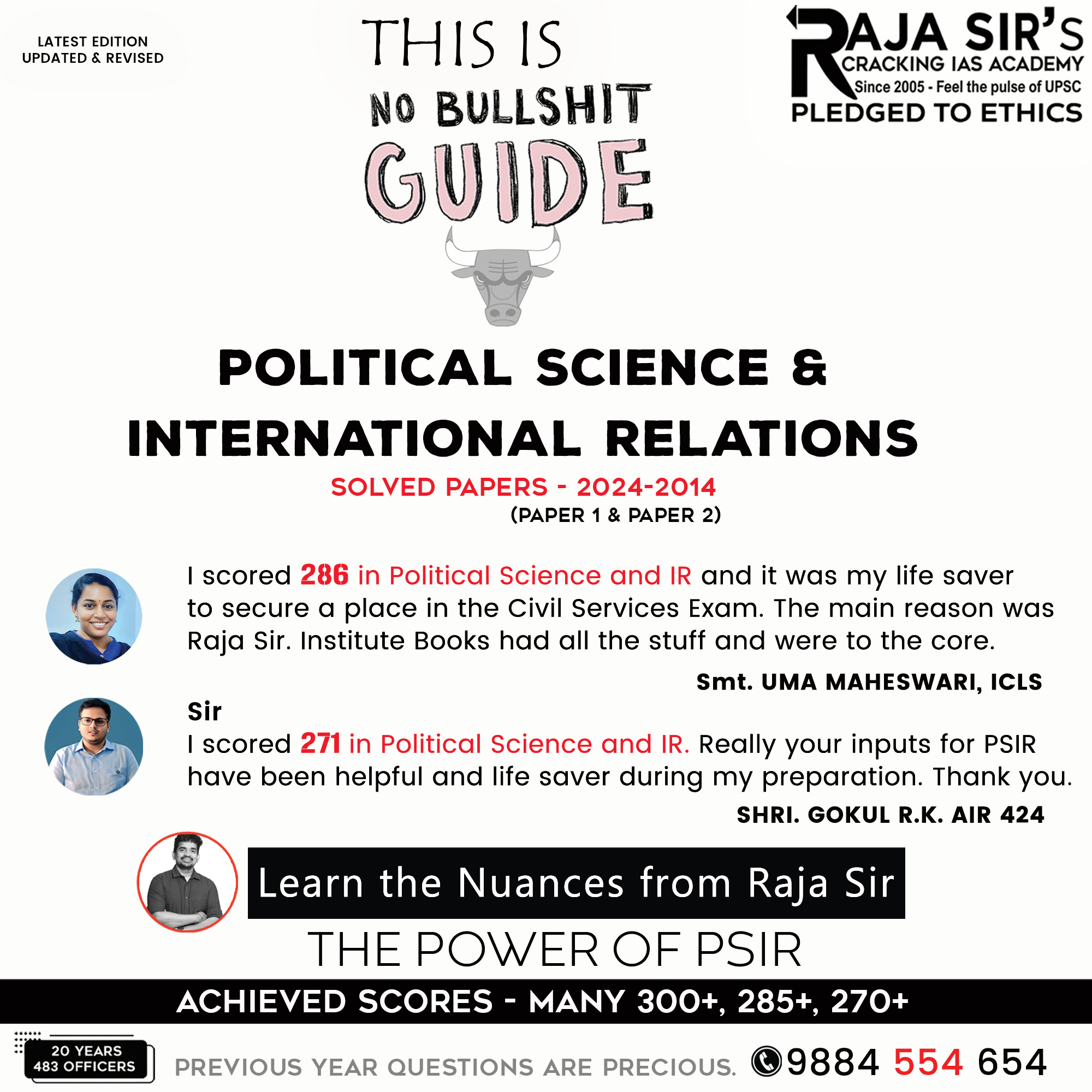- Home
- Prelims
- Mains
- Current Affairs
- Study Materials
- Test Series
 EDITORIALS & ARTICLES
EDITORIALS & ARTICLES
Critically examine C. B. Macpherson's developmental democratic theory. (20 Marks)
 C.B. Macpherson in his ''''Democratic Theory: Essays in Retrieval (1973) propounded the radical theory of democracy, through which he sought to create a democratic order wherein each individual could exercise his/her developmental power.
C.B. Macpherson in his ''''Democratic Theory: Essays in Retrieval (1973) propounded the radical theory of democracy, through which he sought to create a democratic order wherein each individual could exercise his/her developmental power.
(i) As put appropriately by Alkis Kontos, Macpherson''''s theory of democracy sought to humanise liberal democracy that was dominated by free market rules, by bringing in some principles of socialist democracy.
(ii) Macpherson endeavored to add a moral dimension to the theory of democracy, which had become stuck in procedural arguments of welfare state vs market mechanism.
(iii) David Miller rightly argued that Macpherson, in The Political Theory of Possessive Individualism (1962) sought to reconstruct the foundations of democratic theory by employing an alternative model of man as ''''doer'''' instead of a selfish and egoistic man, incapable of considering the larger social good. Thus, he tried to reconcile individual well-being with the larger community.
(iv) Macpherson re-introduced normative arguments in the democratic debate. In Democratic Theory: Essays in Retrieval, he illustrated how making a value judgement could not be escaped in the discussion on democratic theory. He showed how liberal democracy was not value neutral and scientific, since being conformist also means making a value judgement in favor of maintaining the status-quo.
(v) Macpherson''''s constructive view of power paved the way for returning to the original tenets of democracy where power in the hands of the people was a sacrosanct ideal. An entire cannon of theories developed on the empowerment of the individual in later decades of the 20th century, that built on this idea of "power to the people".
(vi) Macpherson''''s idea of developmental power also made an important intervention in the exploitative conditions that the capitalist system had created. The market alienated the masses and created dissatisfaction among them towards a state that seemed to favor the capitalists.
However, Macpherson has been criticized by many of his contemporaries for the difficulty in implementing his idea of radical democracy.
(i) John Dunn in his essay Democracy Unretrieved (1974) criticized Macpherson''''s idea of developing human powers for its ambiguity in deciding in fact which powers were worth developing and to what extent human capacities based on these powers ought to be developed.
(ii) Michael Clark and Rick Tilman argued that Macpherson was unable to locate the actual political vehicle that would enable such a transformation of the democratic system.
In spite of these deficiencies in Macpherson''''s theory, his ideas hold significance even decades after they were formulated, especially in the light of the failure of the neo-liberal model of democracy to curb inequalities and adopt a more inclusive and sustainable approach towards development.










 Latest News
Latest News General Studies
General Studies